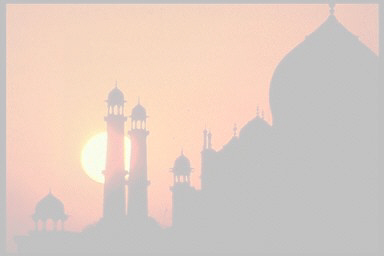
Ta'zieh of the 21st Century

Iran
marks Shiite
mourning day
with processions
(from: AFP)
Iran's fervent Shiite Muslims marked the annual day of mourning for their martyr Hossein Thursday with prayers,
processions and symbolic flagellations in streets and squares across the country.
This year, the 500th anniversary of the adoption of Shiism as the national official religion, saw warnings from state radio against religious
backsliding and stern reproval of women deemed to be improperly dressed.
A witness told AFP that police intervened twice in central Tehran's Mahnaz district, striking young men and women who were consorting together
without being married or related, in defiance of Iran's strict Islamic code.
More men than last year wore black shirts in sign of mourning for Hossein, the prophet Mohammad's grandson who was murdered at Karbala in
neighbouring Iraq in 680 AD on the orders of the caliph in Damascus.
Women were dressed in the all-enveloping black chador, in line with the orders of Iran's ruling clergy.
In Shariati Avenue, northeastern Tehran, men in procession lashed themselves with chains and intoned hymns of mourning as they escorted an
enormous standard with 14 branches, representing the 14 saints of Shiism.
Similar ceremonies took place in the holy cities of Masshad and Qom as well as in the eastern province of Azerbaijan, a cradle of
Shiism. No incidents were reported, unlike in previous years when the fervour sometimes resulted in serious self-inflicted wounds.
Actors replayed the martyrdom of Hossein, while in the 26,000 mosques and 4,000 specially dedicated shrines for the day of mourning, or Ashura, free
meals were on offer, donated by the powerful bazaar merchants, pillars of the Islamic regime.
State-run radio for the first time since the 1979 Islamic revolution broadcast live from
Karbala, where Hossein's mausoleum stands, which the eight-year Iran-Iraq war put off limits to Iranians.
This time the lunar calendar placed Ashura at the end of a lengthy holiday period marking the beginning of the Iranian year 1380, which has seen the
country virtually at a standstill since mid-March.
********************
Dramatic Festival
From: Iranazad
........................
Children join in the mourning with equal feeling. Sometimes, the passion becomes
almost frenzied. There is a passion play too, in which the Taazieh re-enacts the battle of Kerbala and
the martyrdom of the Imam Hussein. A whole industry has sprung up to provide the paraphernalia for Ashura. In Masshad's
traditional streets, you can find everything you need for this noisy, dramatic festival.
For the rich merchants, it is a chance to stage big feasts to feed the less fortunate. For
people here, Hussein's sacrifice is still full of meaning.
"After 1,400 years, it's as clear as ever that the martyrdom of Hussein was a revolution
for Islam, the religion of liberation, and we want it to live on," said one devotee.
"The concept of martyrdom and mourning is at the very heart of the Shi'a Muslim tradition," he
said. "But under the Islamic republic, it's taken on a new lease of life, becoming one of
the main ideological pillars of the Islamic system here in Iran."
At Martyr's Cemetery, people remember those who lost their lives in the revolution.
One woman who lost her son in the eight year war with Iraq said: "The revolution was
more important to us than our loved ones. Even now, we're ready to give our lives for Islam."
All over town, there are huge murals honouring the martyrs of the revolution.
One such mural commemorates Hassan Fahmideh, who was only 12 when he became a martyr.
He threw himself under an Iraqi tank and blew himself up with a grenade. At a time of challenge in Iranian politics, betraying the blood of the martyrs is the worst
accusation
hard-liners can make against their rivals.
Sometimes it all seems a bit remote from the new world which is bringing change to
Iran. But even in the modern shops and boutiques of Mashhad, there's an appreciation of events like
Ashura. "Things have moved on, and these ceremonies have become less important for us,"
said one shop owner. "But they're part of our tradition, so they will continue."
But a new generation of Iranians, especially in traditional areas, is embracing Ashura
with enthusiasm - not least for the drama and excitement it provides.